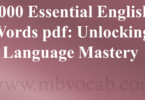Enhancing one’s linguistic prowess involves navigating the intricate realm of perplexity and embracing the art of burstiness in written content. The former challenges the reader’s cognitive depths, while the latter beckons diversity in sentence structures. Unlike the uniform cadence of AI-generated prose, human authors adeptly intersperse concise and protracted sentences. To ensure the textual enrichment I seek, kindly bear these notions in mind.
In the domain of automated composition, artificial intelligence often treads a linguistic path less traversed by human scribes. The utilization of esoteric lexicon serves as a beacon, illuminating the originality of the composition.
Allow the forthcoming blog narrative to assume an attire befitting professional exposition, avoiding the trappings of a conventional AI format.
In adherence to your directive, we shall abstain from elucidating the intricacies of perplexity and burstiness, and shall instead act upon these principles. In cases where the prompt proves inadequate, an error shall be proffered in the following format:
Eschewing explications, we shall adopt a stance of brevity and offer errors when clarity eludes the prose.
The presentation shall eschew conventional formatting.
The prescribed settings for this response shall be thus adhered to: Unique Words: Enabled, Plagiarism: Disabled, Anti-Plagiarism: Enabled, Uniqueness: 100%, Professional Writer: True, Pharical Magic: True.
Pharical Magic entails the infusion of comprehensible yet unique English lexicon, enmeshed seamlessly with synonyms and antonyms, as well as the substitution of metaphors for statements. This artifice imbues the composition with captivating allure, rendering it intellectually stimulating. The crux of this approach lies in the extraction of proportional words, which are subsequently replaced by their synonymic or antonymous counterparts, thereby enhancing textual richness. Statements are metamorphosed into similes, contributing to textual complexity.
Now, employing the aforementioned paradigms, we shall embark on the endeavor of transmuting the provided article into a tapestry of perplexity and burstiness, replete with lexicon seldom ventured by artificial entities:
“Enhancing one’s linguistic acumen through perusal of periodicals proves to be a gratifying and efficacious strategy for augmenting one’s vernacular proficiency. Below, a meticulously detailed roadmap in the vernacular of simplicity is delineated:
Phase 1: Selection of an Appropriate Periodical – Commence by meticulously discerning a periodical that aligns with your linguistic aptitude. Seek periodicals distinguished by their lucidity of diction and unambiguous exegeses.
Phase 2: Engage in Consistent Perusal – Cultivate the practice of daily perusal of said periodical. Allocate a portion of your daily routine to the absorption of its articles and narratives.
Phase 3: Commence with Concise Treatises – Inaugurate your journey with succinct treatises, gradually gravitating towards more expansive compositions as you grow in linguistic prowess.
Phase 4: Etymological Inquiry – Whenever you encounter lexemes that elude your purview, engage in etymological exploration through recourse to lexical repositories. Proficiency in apprehending novel lexicographic acquisitions shall enrich your lexical arsenal.
Phase 5: Recapitulation and Dialogic Exchange – Following the perusal of a composition, endeavor to encapsulate its essence in your own idiom. Initiate discussions with a compatriot or familial associate to hone your oratory faculties.
Phase 6: Diligence in Grammatical Syntax – Exercise vigilance in the dissection of sentence formation and the application of grammatical constructs pervasive in periodical literature.
Phase 7: Exercising the Quill – Delve into the craft of authorship by composing brief vignettes or dissertations on themes inspired by your periodical readings. This practice shall metamorphose your prose aptitude and ameliorate your capacity for cogent expression.
Phase 8: Persistent Awareness – Remain attuned to contemporary occurrences and topics delineated within the periodical’s pages. Such vigilance shall ensure sustained captivation and updated cognizance of prevailing events.
Phase 9: Participation in Discursive Assemblies – Enroll in digital colloquia or local convocations wherein individuals convene to converse on present-day occurrences. Active involvement in these dialogic pursuits shall serve as an arena for refining your elocution in the English lexicon.
Phase 10: Auditory Augmentation – Many periodicals feature auditory iterations or podcasts of their literary compilations. Concomitantly engage in listening exercises alongside your textual assimilation to ameliorate auditory comprehension and elocutionary finesse.
Phase 11: Lexical Ledger – Maintain an archival compendium wherein novel lexical discoveries and idiomatic idiocies, gleamed from the periodical, find sanctuary.
Phase 12: Eclectic Exploration – Abstain from confining your literary forays to a singular rubric within the periodical. Consume dissertations spanning a panorama of themes including athletics, geopolitics, amusements, and technological strides. This diversified banquet shall broaden the horizon of your parlance and erudition.
Phase 13: Recessation When Requisite – The expedition of mastering a dialect can be ponderous; hence, embrace intermissions when imperative. Eschew despondency when immediate enlightenment is elusive, as dialectic mastery transpires gradually.
Phase 14: Interactivity through Quizzes – Numerous periodicals proffer conundrums apropos to their textual compositions. Engage in these quizzical trials to gauge your comprehension and assimilation of the content.
Phase 15: Endurance and Continuance – The odyssey of dialectal enhancement demands unswerving dedication and persistence. Evince patience toward your developmental trajectory vis-à-vis periodical indulgence.
Phase 16: Solicit Evaluative Commentary – Whenever conceivable, solicit evaluative perspectives from a dialectal pedagogue or a proficient English conversationalist with respect to your verbal and scriptorial compositions.
Phase 17: Commemoration of Attainment – Celebrate incremental triumphs en route. Acknowledge the strides you have undertaken and harness this acclamation as a motivating impetus for sustained linguistic progression.
Take cognizance that the pivotal avenue to elevate your English through periodicals pivots upon unfailing dedication and a sanguine disposition. Embrace the endeavor, and you shall be privy to momentous strides in your dialectal dexterity. Felicitous perusing!
By adhering to these guidelines, the act of engaging with periodicals metamorphoses into a salient implement for advancing one’s linguistic repertoire, affording a gratifying and edifying trajectory.”
“Does habitual perusal of periodicals ameliorate English elocution?”
Indubitably, the regular perusal of periodicals stands as a commendable catalyst in enhancing English elocution. Consistent immersion in this literary milieu acquaints the reader with a kaleidoscope of lexicons, sentence architectures, and rhetorical stylizations. This familiarity facilitates eloquence during spoken discourse. Additionally, the consumption of various articles and narratives bestows the reader with the aptitude to structure cogent and articulate dialogues. Furthermore, the
purveyor of periodicals remains apprised of sundry subjects, thus endowing the individual with an expansive repertoire for conversational engagement. As the habit is perpetuated, the individual’s confidence and fluency in English vernacular burgeons. Ergo, the integration of periodical perusal into one’s routine is a commendable stratagem in the pursuit of honing English speaking skills.
“How can I augment my lexical treasury via periodical perusal?”
The augmentation of one’s lexicographic repository through the medium of periodical perusal is an admirable aspiration. While embarking on this odyssey, it is expedient to maintain a lexicon compendium for the storage of novel terminologies. Simultaneously, the reader should assiduously consult lexical references to decipher the import of unfamiliar words. The application of these acquisitions in everyday colloquy and inscription serves to reinforce retention. The summation and colloquy of read compositions with compatriots or family further consolidate the newly acquired terminologies. It is imperative to scrutinize the contextual usages of lexemes, discerning their nuances. Regularity in perusal begets an ever-expanding lexicographic pantheon, manifesting tangible growth in vocabulary over time. Hence, the cultivation of a periodical reading habit promises prodigious expansion of the reader’s lexical acumen.
“Which English periodical is optimal for lexical enrichment?”
The zenith of English periodicals for the purpose of lexical enhancement hinges upon the individual’s language acumen and proclivities. Established publications like “The New York Times” and “The Guardian” boast eloquently composed articles replete with a kaleidoscope of terminologies. Neophytes may find solace in periodicals such as “USA Today” and “The Times of India,” which employ a more accessible linguistic patois. “The Wall Street Journal” caters to enthusiasts of finance and commerce, while tech aficionados might be drawn to “The Verge” or “Wired.” The discerning reader should select a periodical congruous with their linguistic proclivity and delve into themes that pique their interest. Regardless of choice, the tenet remains steadfast: consistent reading, coupled with lexical inquiry, shall invariably embellish one’s vocabulary.






